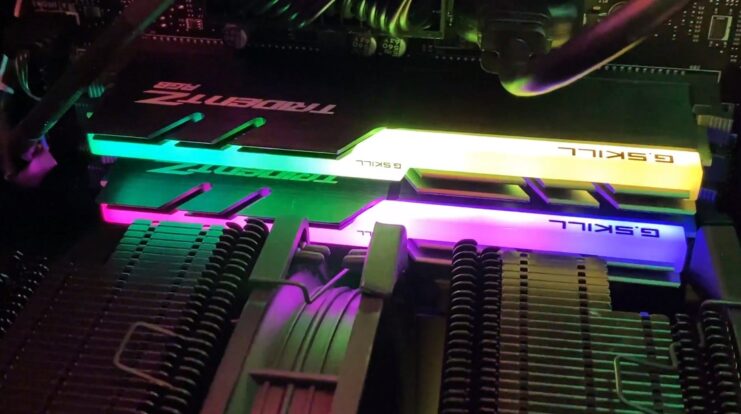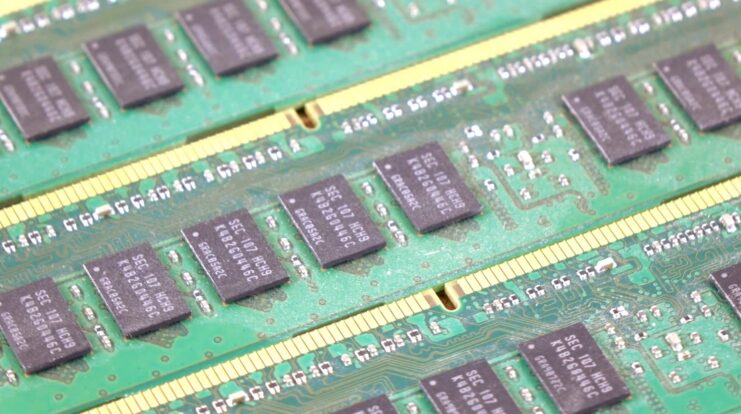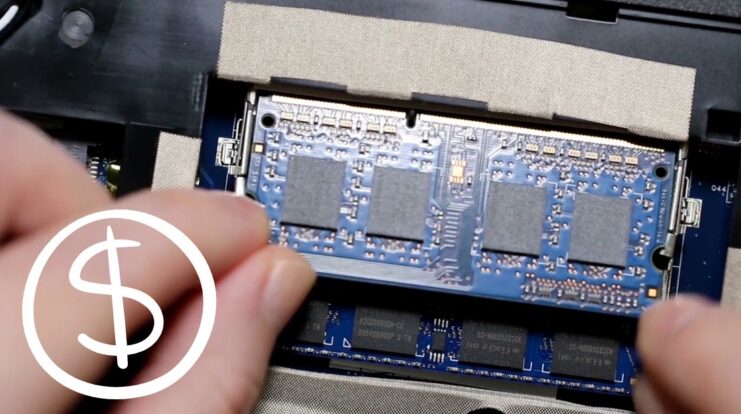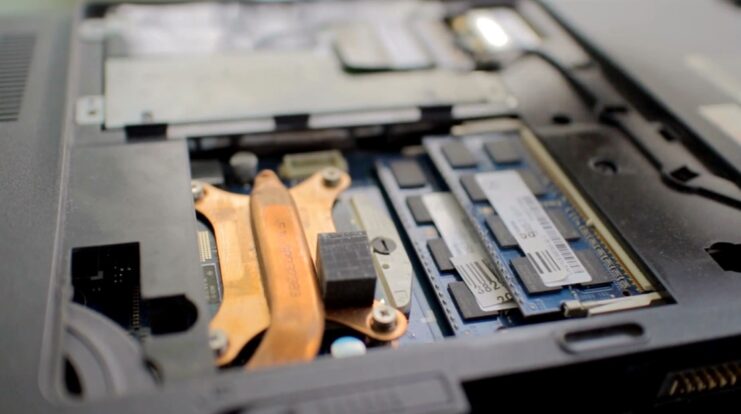Are you considering buying a new laptop in 2024 and wondering if 64GB of RAM is enough for your needs? In this article, we’ll explore the role of RAM in a laptop’s performance, the advancements in technology that have increased the demand for it, and how much RAM is truly necessary for various types of users.
We’ll weigh the benefits and drawbacks of having more RAM, and examine other factors to consider when choosing a laptop. Finally, we’ll provide tips and strategies for deciding whether 64GB of RAM is the right choice for you in 2024.
Understanding RAM
Random Access Memory (RAM) is a crucial component of any computer system, as it stores the data and instructions that a computer’s Central Processing Unit (CPU) needs to perform tasks. It is a form of volatile memory, meaning that it only stores data while the computer is powered on.
The more of it a system has, the more data and applications it can store and process simultaneously, which directly impacts overall performance and multitasking capabilities.
In the context of laptops, having sufficient RAM is critical for running multiple applications, web browsing with several open tabs, and performing tasks that require intensive data processing, such as video editing, 3D rendering, and gaming. However, having too much RAM can result in increased power consumption and potential compatibility issues, as we’ll explore later in this article.
Advancements in technology

Over the past decade, technology has advanced rapidly, leading to significant changes in the way we use our computers. Applications and operating systems have become increasingly resource-intensive, requiring more memory to run smoothly.
Additionally, the rise of cloud-based services and the Internet of Things (IoT) has increased the need for powerful devices with sufficient RAM to handle multiple data streams and connections.
Moreover, the emergence of virtual and augmented reality, AI and machine learning, and complex gaming experiences has driven the demand for more memory in laptops to support these cutting-edge technologies.
In response to these technological advancements, laptop manufacturers have started offering models with higher capacities, such as 64GB or even 128GB, to cater to the diverse needs of consumers.
While pondering over the storage capacity of your laptop, you might also want to learn about recognizing the symptoms of a failing CPU, as it’s a crucial component in your computer’s performance.
RAM requirements in 2024
Given the current and anticipated technological trends, the RAM requirements for laptops in 2024 are expected to be higher than ever before. With the ongoing development of more resource-intensive applications, operating systems, and new technologies, having a laptop with sufficient RAM is becoming increasingly important.
For basic computing tasks, such as word processing, web browsing, and media consumption, 8GB to 16GB of memory should suffice. However, for more demanding tasks and professional use cases, such as video editing, 3D rendering, and gaming, laptops with at least 32GB of RAM are recommended. In some cases, even 64GB of RAM may be necessary to ensure smooth performance and seamless multitasking.
RAM needs for different use cases

The amount needed in a laptop depends on the intended use case. For casual users who primarily use their laptops for web browsing, media consumption, and office productivity tasks, 8GB to 16GB of RAM should be adequate. However, for more specialized users, such as gamers, content creators, and business users, these requirements can vary significantly.
Gamers, for example, require high-performance laptops with at least 16GB to 32GB of RAM to support modern games with complex graphics and physics. Content creators, such as video editors and 3D artists, may need laptops with 32GB or even 64GB of RAM to handle resource-intensive tasks like rendering and editing large files.
Business users, particularly those working with big data, machine learning, or running multiple virtual machines, may also benefit from laptops with 32GB to 64GB for optimal performance and multitasking capabilities.
Benefits
There are several benefits to having more memory in your laptop, including:
- Faster speeds: Having more memory allows your laptop to store and process larger amounts of data simultaneously, resulting in faster performance and smoother multitasking.
- Improved multitasking: With more RAM, you can run multiple applications and switch between them seamlessly, making it easier to multitask and work efficiently.
- Enhanced gaming experience: For gamers, having more RAM means better performance, higher frame rates, and the ability to run games with more complex graphics and physics.
- Future-proofing: As technology continues to advance and applications become more resource-intensive, having more RAM ensures that your laptop remains capable of handling new software and updates without compromising performance.
Another equally important aspect to consider is your internet speed, particularly if you plan on doing any online gaming – you might want to read our comprehensive article on whether a 400 Mbps internet speed is adequate for gaming.
Cost considerations

It’s essential to consider the associated costs. Laptops with higher RAM capacities tend to be more expensive, so it’s crucial to determine whether the additional investment is worth it for your specific use case.
For casual users, opting for a laptop with 8GB to 16GB of RAM might be more cost effective, as the performance benefits of 64GB may not be fully utilized. However, for professional users, such as content creators, gamers, and business users, the added cost of a laptop with 64GB of RAM could be justified by the improved performance and multitasking capabilities.
Future-proofing
Future-proofing refers to the concept of ensuring that your laptop remains relevant and capable of handling new technologies, software updates, and resource-intensive tasks for an extended period. In the context of RAM, having more memory can contribute to future-proofing your laptop by ensuring it can handle the increasing demands of new applications and updates.
While 64GB might seem excessive for some users, it can be a wise investment for those who want to ensure their laptop remains capable of handling new technologies and software updates for years to come. However, it’s essential to weigh the benefits of future-proofing against the additional costs associated with purchasing a laptop with 64GB of RAM.
While considering the storage capacity for your laptop, it’s also essential to ponder about other aspects of its performance, like the right thermal paste for your device’s processor, which you can learn more about in our comprehensive comparison of two popular thermal paste options.
Limitations of having more RAM
While having more of it can offer numerous benefits, it’s important to consider the potential limitations, such as:
- Increased power consumption: Laptops with more RAM consume more power, which can result in reduced battery life.
- Potential compatibility issues: Some older applications and software may not be compatible with laptops with higher RAM capacities, leading to potential compatibility issues.
- Diminishing returns: There’s a point where adding more RAM won’t result in a significant performance boost, especially for users who don’t engage in resource-intensive tasks.
Other factors to consider
When choosing a laptop, it’s important to consider other factors beyond RAM, such as the processor, graphics card, and storage. A high-performance processor and a dedicated graphics card are crucial for tasks like video editing, 3D rendering, and gaming. Similarly, having sufficient storage (SSD or HDD) is essential for storing large files and ensuring fast data access.
Understanding other aspects of computer performance, such as how heat can impact your CPU, can also play a key role in keeping your device running smoothly.
How to decide
To decide whether 64GB of RAM is enough for your laptop in 2024, consider the following tips and strategies:
- Assess your needs: Determine your specific use case and the type of tasks you’ll perform on your laptop. If you require a high-performance machine for resource-intensive tasks, 64GB might be necessary.
- Consider future-proofing: If you want your laptop to remain relevant and capable of handling new technologies and software updates for years to come, opting for 64GB could be a wise investment.
- Weigh the costs: Evaluate the additional cost of a laptop with 64GB of RAM against the performance benefits it offers, and decide whether the investment is worth it for your specific needs.
- Factor in other components: Remember to consider the processor, graphics card, and storage when choosing a laptop, as these components also play a significant role in the overall performance and user experience.
- Read reviews and seek expert advice: Consult reviews, product specifications, and expert opinions to better understand the performance benefits and potential limitations of laptops with 64GB of RAM.

FAQs
Do I need more RAM if I use virtual machines?
Yes, running multiple virtual machines can be resource-intensive and requires more Random Access Memory to ensure smooth performance. Laptops with 32GB to 64GB are recommended for users who frequently work with virtual machines.
Is there a significant difference in performance between single-channel and dual-channel RAM configurations?
Dual-channel configurations can provide better performance than single-channel configurations due to increased memory bandwidth. This can result in smoother multitasking and improved performance in tasks that are sensitive to memory bandwidth, such as gaming and video editing. However, the performance difference may not be noticeable for everyday tasks.
What is the difference between SODIMM and DIMM RAM?
SODIMM (Small Outline Dual In-line Memory Module) and DIMM (Dual In-line Memory Module) are two types of Random Access Memory modules that differ in size and form factor. SODIMM is primarily used in laptops due to its smaller size, while DIMM is used in desktop computers. These modules are not interchangeable and must be used in the appropriate device type.
Can I add more RAM to my laptop to improve its performance if it has a slow processor?
While adding more memory can help improve multitasking capabilities and may result in a performance boost for some tasks, it cannot compensate for a slow processor. If your laptop has an outdated or low-performance processor, upgrading the Random Access Memory may not significantly improve overall performance. In this case, you might need to consider upgrading your laptop to one with a more powerful processor.
Conclusion
In conclusion, determining whether 64GB of RAM is enough for a laptop in 2024 depends on your specific use case, performance requirements, and budget considerations. While 64GB can offer numerous benefits, such as faster speeds, improved multitasking, and future-proofing, it may not be necessary for all users.
For casual users, a laptop with 8GB to 16GB of RAM should be sufficient for everyday tasks. However, for professional users who engage in resource-intensive tasks or want to future-proof their laptops, opting for 64GB of RAM could be a wise investment.
Ultimately, it’s essential to carefully assess your needs, weigh the costs and benefits, and consider other factors, such as the processor, graphics card, and storage, to make an informed decision about whether 64GB is the right choice for your laptop in 2024.












